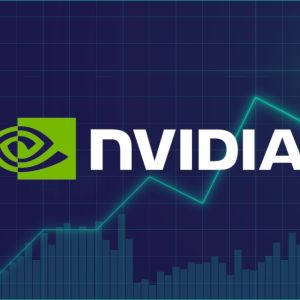Nvidia spent over $1 billion in 2024 on artificial intelligence (AI) investments, cementing its role as both the backbone and bankroller of the AI revolution. The Silicon Valley giant, which hit a $3 trillion market cap in June, poured this cash into 50 start-up funding rounds and corporate deals. In just one year, Nvidia’s investment spending shot up 15% compared to 2023, when it dropped $872 million across 39 deals. That’s more than ten times what the company spent in 2022. Most of this cash went into “core AI” start-ups, the kind of companies that rely heavily on high-performance computing power—the exact thing Nvidia specializes in. A billion dollars fueling the AI frenzy Tech companies worldwide have spent tens of billions of dollars on Nvidia’s GPUs, the hardware powering cutting-edge generative AI models like ChatGPT. The demand for these chips skyrocketed after ChatGPT made its debut two years ago. The company’s $1 billion targeted those with the kind of tech demands that make Nvidia GPUs a must-have. Among its standout deals was a strategic investment in Elon Musk’s xAI, which was done in partnership with rival chipmaker AMD. Nvidia also backed AI model powerhouses like OpenAI, Cohere, Mistral, and Perplexity. And it’s not just funding. Nvidia’s Inception incubator has become a breeding ground for AI start-ups, supporting thousands of fledgling companies. The program offers preferred pricing on Nvidia hardware and cloud credits from its partners, ensuring that these companies have the tools—and the reasons—to stick with Nvidia as they grow. The acquisitions and a growing portfolio Nvidia was also on an acquisition spree. It snapped up Run.ai, an Israeli platform specializing in AI workload management, after getting the green light from EU regulators. The AI giant also bought Nebulon, OctoAI, Brev.dev, Shoreline.io, and Deci, making more acquisitions in one year than it had in the previous four combined. The acquisitions are reportedly as strategic as the investments. Nvidia is spreading its reach into sectors like medical technology, gaming, drones, and even humanoid robots. These deals are building Nvidia’s influence far beyond GPUs. One of its crown jewels is CoreWeave, an AI cloud computing provider that heavily relies on Nvidia’s chips. CoreWeave’s valuation exploded from $7 billion to $35 billion in just a year, with Nvidia playing a significant role. Nvidia invested $100 million in CoreWeave in 2023 and joined a $1 billion equity fundraising round in 2024. Another notable investment was in Applied Digital, a company that was struggling with a plummeting share price and heavy debt. Nvidia led a $160 million equity funding round in September, which turned the company’s fortunes around. Its stock price jumped 65% practically overnight. A tangled web of tech and finance Nvidia’s dominance is undeniable, but it’s not without challenges. Some of its biggest customers—Microsoft, Amazon, and Google—are working to develop their own chips to reduce dependence on its GPUs. If they succeed, Nvidia’s revenue could take a hit. That’s why smaller AI companies are becoming increasingly important to it. Critics, including regulators in the U.S., Europe, and China, are questioning whether Nvidia’s investments come with strings attached. Bill Kovacic, a former chair of the Federal Trade Commission, said regulators are “keen” to investigate whether Nvidia is using investments to lock companies into its ecosystem. Nvidia denies that, saying that companies are free to make their own tech decisions. Meanwhile, Wall Street giants like Blackstone, Pimco, Carlyle, and BlackRock have poured more than $11 billion into “neocloud” companies—start-ups that buy Nvidia chips and lease cloud computing services to others building AI models. These GPUs are so valuable that they’re being used as collateral for massive loans. It’s a circular economy in which Nvidia sells chips to companies, those companies use the chips as loan collateral, and the loan money goes right back to buying more Nvidia chips. This frenzied cycle has raised questions about long-term sustainability. Critics wonder how long GPUs will hold their value as collateral, especially with newer, more advanced versions constantly hitting the market. The risk of over-leveraging and circular financing looms large, but for now, Nvidia’s chokehold on the AI industry shows no signs of weakening. Land a High-Paying Web3 Job in 90 Days: The Ultimate Roadmap




















